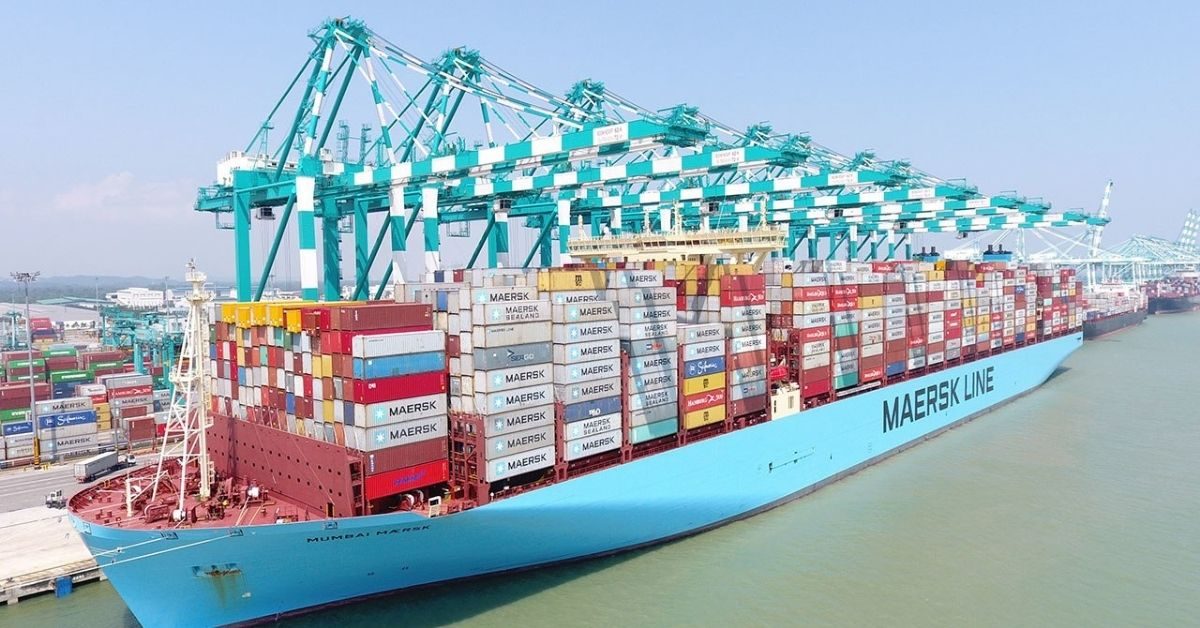A.P. Moller-Maersk — the largest shipping company in the world — expects the ongoing exceptional market situation caused by the global supply chain disruptions to continue until the first quarter of next year, it said Nov. 2.
The Copenhagen-headquartered company posted its most profitable quarter in its history in the third quarter of this year, benefitting from the soaring container freight rates caused by COVID-19 and capacity shortages. It reported a Q3 2021 net profit of $5.461 billion, compared to $947 million in the same period last year.
However, Maersk said the ongoing dislocation in demand and supply sides of logistics industries increases the uncertainty surrounding the outlook due to the temporary nature of current demand pattern.
“On the demand side, high household savings in the US and Europe should support consumer demand, but the composition of spending is likely to rebalance towards services,” it said in its Q3 results statement.
“But on the supply side, supplier delivery times remain lengthy, and there is little visibility into when capacity constraints, including landside bottlenecks in trucking and warehousing, will abate.”
Record freight
Container freight rates have risen to record-highs caused by a surge in demand combined with bottlenecks and congestions across global supply chains.
The average freight rates in the third quarter more than doubled to $3,651/forty-foot equivalent units compared with $1,909/ forty-foot equivalent units in Q3 2020.
Currently, 64% of its long-haul volumes are on long-term contracts compared to 50% a year ago.
However, bunker fuels costs for the container giant also inched higher as oil prices have also risen sharply during this period.
Bunker costs in Q3 2021 surged to $1.4 billion from $759 million in the same quarter last year.
The average bunker price in this period rose by 74% to $504/mt from $290/mt in Q3 2020.
This was also attributed to a growth in bunker consumption, due to “a rise in deployed capacity and an increase in average network speed in response to low schedule reliability.”
Maersk is one of the biggest consumers of bunker fuel, which is almost all oil derived. The group consumed 10.37 million mt of bunker fuels last year, according to its 2020 sustainability report. This includes high sulfur fuel oil, low sulfur fuel oil, marine diesel, and marine gasoil.
On the back of such a profitable quarter, Maersk also said it had agreed to acquire German freight forwarding company Senator International, along with the ordering of two Being 777 aircrafts.
“By strengthening our footprint within air freight, we become a sizable player able to add even more flexibility to our customers’ supply chains and further support their needs for truly integrated logistics across ocean, air and landside,” said Maersk CEO Søren Skou.
Fuels of the future
Maersk, which is targeting a 60% relative CO2 reduction from shipping by 2030 and hopes to achieve net-zero CO2 emissions by 2050, has made a number of renewable fuel investments in the past few months.
It is looking to scale the production and distribution of methanol and ammonia, both of which it considers to be the most feasible future marine fuels.
On Oct. 14 it said it is investing in Vertoro, a Dutch startup developing liquid lignin technology which can be used as a marine fuel, as it explores avenues to decarbonize its operations.
The investment in Vertoro is Maersk’s third investment in future fuels in less than two months. In September, it invested in WasteFuel, a startup focused on turning waste into sustainable aviation fuel, sustainable bio-methanol, and renewable natural gas. This was followed by an investment in Prometheus, which is developing a direct air capture-technology to enable cost efficient, carbon neutral electro fuels.
On July 1, it signed an agreement with South Korea’s Hyundai Mipo Dockyards to a build a feeder vessel capable of sailing either on methanol or very low sulfur fuel oil (VLSFO). It also signed a contract for eight 16k TEU container vessels and is looking to source green fuels for these ships.
Source : SP Global







